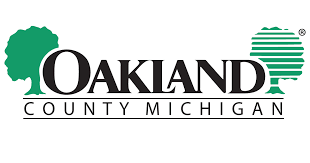
FOR IMMEDIATE RELEASE
Oct. 27, 2020
Governor’s Office Media Contact: Press@Michigan.gov
Treasury Department Contact: Ron Leix, Treasury, 517-335-2167
Whitmer Administration Announces Grants for Eligible Teachers, Support Staff
Grant Dollars Provide Support for Extra Hours,
Costs Incurred due to In-Person Learning Suspension in Spring
LANSING, Mich. – Today, Governor Gretchen Whitmer and State Treasurer Rachael Eubanks announced that eligible Michigan teachers and support staff who worked additional time and incurred additional costs during the 2019-2020 school year due to the COVID-19 pandemic can receive a grant through two new grant programs.
Under both the Teacher COVID-19 Grant and the Support Staff COVID-19 Grant programs, eligible teachers can receive up to $500 and eligible support staff can receive up to $250. The state of Michigan’s Fiscal Year 2021 budget provides $53 million for eligible K-12 classroom teachers and $20 million for eligible support staff.
“Our teachers and support staff have made incredible sacrifices this year to ensure our kids can get a great education while Michigan fights the COVID-19 pandemic. They deserve all of the support we can give as we continue working around the clock to keep Michigan families safe,” said Governor Whitmer. “My administration will continue working hard to protect our educators and ensure our kids are learning the skills they need to grow this year. And as we continue to fight this virus, remember to mask up, maintain six feet of physical distancing, and get your flu vaccine.”
“Teachers and support staff have put in the extra hours and time to ensure our children receive an education during the COVID-19 pandemic,” Eubanks said. “We need to support our school employees as they continue to support our students and families during the pandemic. I thank them for all they are doing in these extraordinary times.”
“Having been a classroom teacher for nearly 20 years, I know that this past spring was a stressful time for teachers and support staff,” said Sen. Dayna Polehanki. “The shift from in-person instruction to remote learning that occurred due to COVID-19 required additional time, costs, and energy to ensure learning continued, so I applaud Governor Whitmer and State Treasurer Eubanks for recognizing and supporting educators with these new grant programs.”
“When COVID-19 hit our state, teachers and support staff across Michigan rallied to keep our children connected to learning and their school communities,” said Rep. Sheryl Kennedy. “This meant learning a completely new skill set as they were simultaneously trying to keep students on par with their learning. This was and continues to be an effort that exceeds the 40 hour work week and consumed most of the non-student calendar days including spring and summer breaks. This grant will not replace or compensate that time hour for hour, but it is an effort for the state to say, ‘We see you. We get it. Thank you.’”
“COVID-19 has challenged our communities and especially our schools, but together, as a state we have pushed forward. As a former high school teacher, I applaud the efforts of teachers and students as they work tirelessly to keep our education system the best it can be,” said Rep. Nate Shannon. “This grant being made available to teachers will help continue to provide resources to the classroom, which is more necessary than ever. I am very happy today to echo a message to all teachers and students that we stand with them.”
“Michigan’s teachers and support staff have gone above and beyond during this health crisis to ensure all our students succeed despite the challenges we have faced,” said Rep. Matt Koleszar. “As a teacher, I understand the sacrifices educators make for their students even during ordinary times, and the times we live in now are far from ordinary. Teachers have spent countless hours developing new ways to educate and support our students that fit our new reality, and I’m proud to stand with the governor to make sure they have what they need to support themselves and their families while they continue their critical work.”
To help combat the spread of COVID-19, Gov. Gretchen Whitmer on April 2 signed an executive order that suspended in-person instruction of K-12 students and provided limited and temporary relief from certain requirements so K-12 instruction could continue through alternative methods during the public health crisis.
Teacher COVID-19 Grant Program
The Teacher COVID-19 Grant Program was created in state law to recognize the additional time and additional costs classroom teachers in a school district or nonprofit nonpublic school spent to ensure learning continued when in-person instruction was suspended in the spring.
Full- and part-time classroom teachers who taught K-12 students in a school district or nonprofit nonpublic school classrooms during the 2019-2020 school year prior to the suspension of in-class activities are eligible.
To receive up to $500, teachers must have performed at least of 75% of their standard instruction workload in brick and mortar classrooms during the last school year prior to the suspension of in-person instruction on April 2.
Support Staff COVID-19 Grant Program
The Support Staff COVID-19 Grant Program was created in state law to recognize the additional time eligible K-12 support staff spent outside of normal working hours, hazardous conditions encountered and additional costs incurred to provide services to students when in-person instruction was suspended in the spring.
School support staff includes a full- or part-time paraprofessionals, aides or noninstructional staff who work in a public school, which includes local and intermediate school districts and public school academies.
To receive up to $250, individuals must have performed at least of 75% of their workload in brick and mortar buildings during the last school year prior to the suspension of in-person instruction on April 2.
Additional Grant Program Information
The Michigan Department of Treasury is working with the Michigan Department of Education, school entities and other education partners to implement the programs. Eligible teachers and support staff should consult the school entity where they worked during the 2019-2020 school year to ensure they receive a grant.
Grant funding checks are anticipated to be sent directly from the state Treasury Department to teachers and support staff in February 2021.
For more information about the grant program, including frequently asked questions, go to www.michigan.gov/TSSC19Grants. |





 Bats do some pretty amazing things for Michigan, and there’s no better time to spotlight them than during Bat Week (Oct. 24-31), an annual international celebration. It’s a good opportunity to learn about these important species and consider the benefits of bats.
Bats do some pretty amazing things for Michigan, and there’s no better time to spotlight them than during Bat Week (Oct. 24-31), an annual international celebration. It’s a good opportunity to learn about these important species and consider the benefits of bats.
 With opening day of the 2020 firearm season just weeks away, it’s a good time to start preparing. Hunters, if you’ve lost or misplaced your hunter safety certificate or changed your name, you can
With opening day of the 2020 firearm season just weeks away, it’s a good time to start preparing. Hunters, if you’ve lost or misplaced your hunter safety certificate or changed your name, you can  Each October, the Michigan History Museum in Lansing hosts a celebration to highlight almost 14,000 years of human history in our state. This year, the celebration has gone virtual with an all-new online presence, making it easier for more people to uncover these stories.
Each October, the Michigan History Museum in Lansing hosts a celebration to highlight almost 14,000 years of human history in our state. This year, the celebration has gone virtual with an all-new online presence, making it easier for more people to uncover these stories.
 Raking up fallen leaves can be a fun fall activity or a challenging chore. While most homeowners rake leaves for curbside disposal, many are turning to composting, a simple and effective way to deal with organic waste.
Raking up fallen leaves can be a fun fall activity or a challenging chore. While most homeowners rake leaves for curbside disposal, many are turning to composting, a simple and effective way to deal with organic waste.
 Camping and exploring nature are passions for Bill and Betty Perkis, an Upper Peninsula couple who enjoy planning their vacations around visits to national parks. The two recently decided to bring a bit of nature home by actively managing their property for wildlife. The Perkises sought the help of forestry and habitat experts to incorporate sustainable forestry techniques that would improve their 40 acres for species like the golden-winged warbler – a rare, yellow and gray songbird that prefers young forests for breeding and nesting.
Camping and exploring nature are passions for Bill and Betty Perkis, an Upper Peninsula couple who enjoy planning their vacations around visits to national parks. The two recently decided to bring a bit of nature home by actively managing their property for wildlife. The Perkises sought the help of forestry and habitat experts to incorporate sustainable forestry techniques that would improve their 40 acres for species like the golden-winged warbler – a rare, yellow and gray songbird that prefers young forests for breeding and nesting.

 Oakland County Economic Development Strategic Plan
Oakland County Economic Development Strategic Plan

